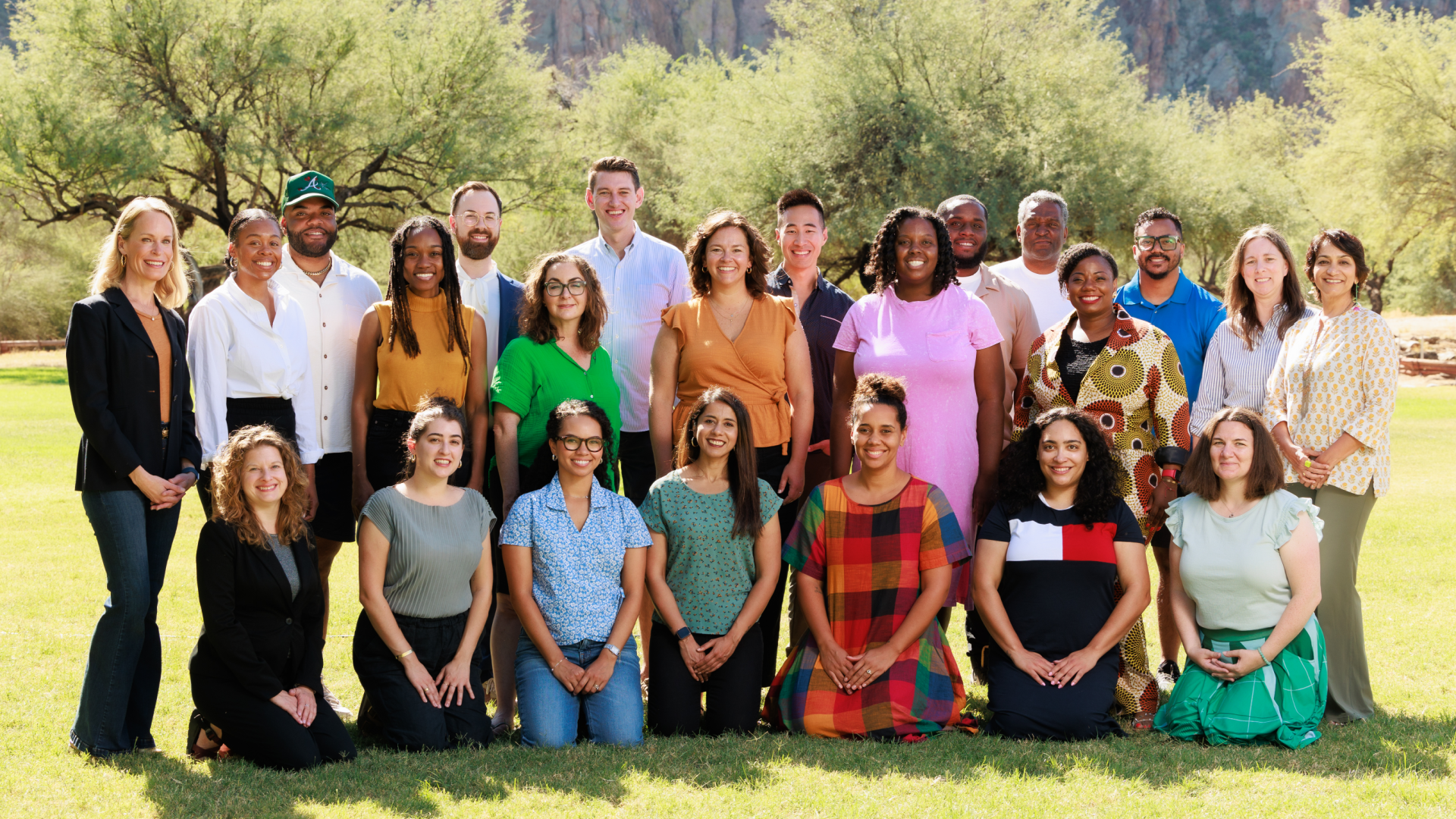Unfinished Live, held September 2022 in New York City and virtually, invited leading experts and engaged people to contribute to shaping our digital future where new technologies and policies enable a stronger democracy, a fairer economy, and a more just society. The annual conference is held by Independent Sector member Unfinished, which works to strengthen our civic life in the digital age.

Robb King
Independent Sector recruited a cohort of leaders from organizations that support underrepresented and underserved communities to attend Unfinished Live. Their attendance and subsequent reflections help support our storytelling project to amplify and learn from their experiences and how they see a new web creating more opportunities for the communities they serve.
Robb King, a Washington, DC community leader and founder and owner of Blume Theory Strategies LLC, attended Unfinished Live and shared his reflections with us.
“History repeats itself, but in such cunning disguise that we never detect the resemblance until the damage is done.” – Sydney J. Harris
With the support of Independent Sector, I attended Unfinished Live in New York City this past September. The conference – aimed at thinking through the creation of a diverse, just, equitable digital future – was an eye-opening experience filled with moments of inspiration and more moments of concern. As I reflected on my conference experience, I found myself fixated upon Sydney J. Harris’ quote above.
Now, I am a skeptic, and I believe a healthy dose of skepticism is critical for the curious mind seeking truth. As someone who has built a professional and public life around questioning and tackling tech injustices, my skepticism was fully present throughout this conference. I often find that tech conferences hyperfocus on the positive possibilities of new tools and rarely address the harmful probabilities.
So, I was pleasantly surprised and elated when Shoshana Zuboff, an American author, Harvard professor, social psychologist, philosopher, and scholar, opened the conference with a conversation about her work regarding surveillance capitalism – capitalism that profits from watching and tracking individuals. With such a strong, clear start grounded in a progressive ideology, I assumed the conference would be something that it did not quite fulfill – a diverse, just, equitable space building towards a similar digital future. Though I left disappointed, I learned three valuable lessons.
Lesson 1: Shared Language is Necessary
As I sat through presentations, I heard multiple abstract and technical words used. Words like “democracy,” “privacy,” “Web3.0,” and “blockchain.” I began to realize that conference presenters had different interpretations of these abstract and technical words, but were attempting to have conversations regarding them. With a lack of consistency among presenters, I wondered what interpretation the average audience member would develop.
I have come to understand that developing a shared language that many people can access is essential to the development of equity-centered tools. When you lack a shared language, you risk alienating people from the conversation. Historically, abstract and technical words have been used to restrict “undesirable” groups of people from benefiting from new technical developments – or worse, being used as pawns that power such new tools. I found myself questioning whether this was happening at the conference.
Lesson 2: Embody Internally What You Desire to See Externally
As I listened to phrases like “diverse, just, equitable digital future,” I began to assess how the conference was practicing its ideals in the current moment. Though the conference espoused the desire to create a digital future that works for everyone, (1) the majority of the conference attendees were white; (2) the majority of the service workers were people of color; and (3) many of the presenters came from elite spaces. This did not feel like a “diverse, just, equitable” space, so I questioned how it could lead to a “diverse, just, equitable digital future.”
And while I appreciate the conference for including women of color, Queer individuals, and youth in presentations, the purpose of their presence seemed solely focused on diversity. They were often placed in conversation with those who shared similar identities (e.g. an all-youth panel or an all-women of color panel), served as the main presentations focused on equity, and were not integrated into the bulk of conversations taking place throughout the conference. In addition, there were very few presenters with localized, practical experience in equitable tech development and advocacy — and many of those groups exist (e.g. the Latinx organization Mijente).
Before we can ever create the kind of external world we desire, we have to do our best to create an internal world that is closely aligned. If we cannot create such a thing for which we have a decent amount of control over, how can we expect to create it externally?
Lesson 3: Politics Are Always Present, So Be Clear About Yours
Between Zuboff’s presentation regarding the harms of surveillance capitalism and conversations focused on celebrating technocapitalism, I found myself confused about the message the conference was attempting to send. As a mentor once said to me, “Everything is political.” I truly believe that. No matter what we do, a politic (or set of values by which we engage with the world) is being presented or developed – whether we are aware of it or not.
I sensed many different politics present throughout the conference, which left me confused about where Unfinished stood and what it truly believes. It seems confusing to advocate for a “diverse, just, equitable digital future,” while the majority of your conference panels are composed of individuals from elite spaces. It seems confusing to advocate for a “diverse, just, equitable digital future,” but have presenters advocating for tools that they themselves have not fully interrogated for harmful impacts. The question remained: “What is Unfinished’s politic?”
Though the conference did not materialize in the way I hoped it would, I walked away with some valuable lessons that both affirmed and encouraged me in my work. This year, I started a business called Blume Theory Strategies – with the aim of helping people build meaningful careers and sustainable organizations. Much of my work focuses on communities of color, Queer communities, and organizations working within technology.
Throughout my career, I have watched people build data systems, tech tools, and programs with the best intentions, but poor implementation. I decided to take the lessons I have learned along the way and support others in avoiding or navigating those obstacles. Part of that work involves getting people to stop what they are doing and question why they are doing it.
Sometimes in a rush to tackle an issue, we create beautiful missions and visions with abstract language that have not been fully operationalized. And because those words are abstract and lack a shared understanding among our teams, we have internal systems that are nowhere reflective of the worlds we strive to build. And lastly, we find ourselves doing things that may be out of step with our politic or values. I’m grateful that a conference like Unfinished Live exists because it means there is interest in how new technology is shaped. However, I also understand why businesses like mine are needed, as well.
Unfinished, an Independent Sector member, is a network of networks bringing together the collective efforts of partners to strengthen our civic life in the digital age.



